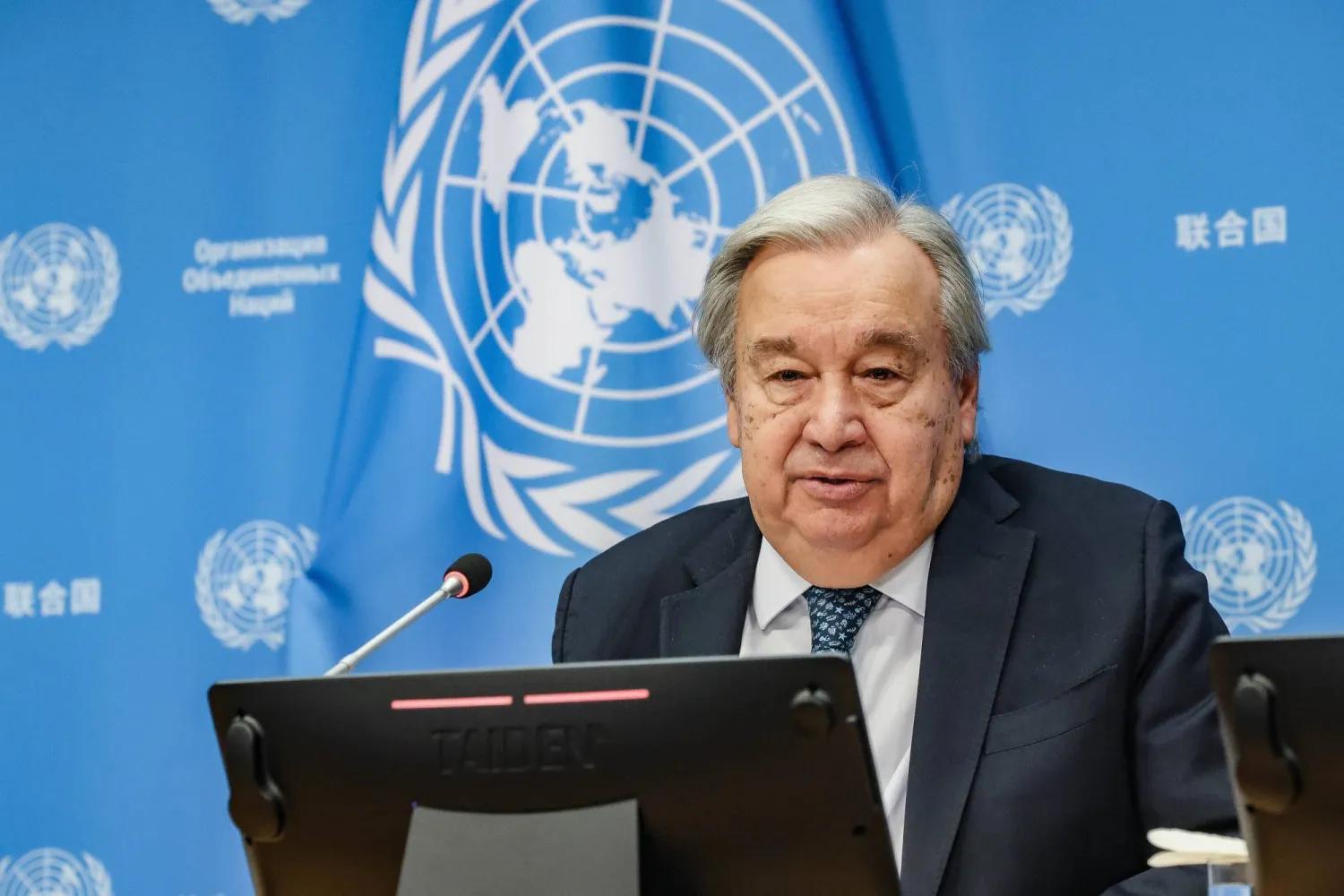Africa-Press – Eritrea. UN chief said, “Leaders must get serious – and deliver.”
Today (16 Sep), United Nations Secretary-General António Guterres briefed correspondents ahead of the 80th session of the UN General Assembly (UNGA 80) High-Level week.
He warned that global divisions, conflicts and crises have left the very principle of international cooperation to its most fragile point in decades.
Nearly 150 heads of state and government are expected in New York next week, alongside thousands of officials and diplomats.
Guterres said he would personally hold more than 150 bilateral meetings, pressing leaders “to speak directly with each other, to bridge divides, to reduce risks, to find solutions.”
The Secretary-General highlighted peace, climate, responsible innovation, gender equality, development financing and UN reform as central themes of the week.
He called for urgent steps to end wars in Gaza, Ukraine, Sudan and beyond, and reiterated the need for a lasting peace in the Middle East based on a two-State solution.
On climate, he urged countries to bring forward stronger national plans to keep global warming below the 1.5°C threshold envisioned in the landmark 2015 Paris Agreement on climate change – which seems increasingly out of reach.
He also announced the launch of a Global Dialogue on AI Governance to ensure technology develops with benefits to humanity at the centre.
He stressed, “Our times demand more than posturing and promises. They demand that leaders make progress and follow through. To honour the Charter, pursue peace, advance sustainable development, ensure human rights, and confront global challenges together. The United Nations is the place. Next week is the time. Leaders must get serious – and deliver.”
Asked about his opinion on the Senior independent rights investigators appointed by the Human Rights Council who alleged that Israel’s actions in Gaza constitute genocide, Guterres said, “It is not in the attributions of the Secretary-General to do the legal determination of genocide that belongs to the adequate judicial entities, namely the International Court of Justice. And let us be aware that at the present moment, the International Court of Justice is dealing with a case whose name is “Application of the Convention on the Prevention and Punishment of the Crime of Genocide in the Gaza Strip.”
He added, “The fact that I have not the competence to the legal determination of genocide doesn’t mean that I do not consider that what’s happening in Gaza after the horrific attacks by Hamas on October 2 years ago. What happens in Gaza today is horrendous.”
He continued, “This is something we cannot forget, independently of the names that are given. The truth is that this is something that it is morally, politically and legally intolerable.”
He stressed, “History will remember the 400 UN members that were killed in Gaza. History will remember all the efforts that we have made to denounce the constant violations of international law, and worst, the level of death and destruction that has no parallel in my time in office. History will remember that we have been in a leadership position in defense of the rights of the Palestinian people, in the promotion of a Palestinian state. That is what history will remember, not a question of semantic.”
He also said, “With the attack that took place in Qatar, it doesn’t look that Israel is interested in a serious negotiation for a ceasefire and the release of hostages.”
Answering a question, the UN chief said, “As we have no carrots and no sticks, in a world in which we have the geopolitical divides that we have, it’s extremely difficult to make the protagonists of the present conflicts understand the need to come to peace. Now, the United States has carrots and sticks, so in some situations, if you are able to combine the 2, I think we can have a very effective way to make sure that some peace process at least can lead to a successful result.”
On Ukraine, he said, “I am not optimistic about a short-term progress in the peace process in Ukraine. Our position is very clear: We need an immediate ceasefire, but a ceasefire that leads to a solution based on the UN charter, international law and resolutions of the General Assembly. The positions of both sides are now largely incompatible.”
What’s happening in Afghanistan, he said, “is absolutely intolerable. It’s not only intolerable: it’s also stupid, because not to allow women and girls to participate in humanitarian aid is terribly detrimental to the whole population of Afghanistan.”
About Lebanon, he said that it is “absolutely essential to support the Lebanese government, which has a program that aims at the monopoly of force in the hands of the Lebanese army, and it is essential that Israel respect the ceasefire and abandon positions inside Lebanon.”
For More News And Analysis About Eritrea Follow Africa-Press







